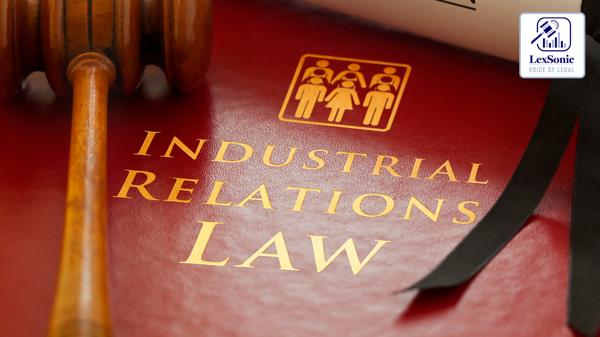Navigating Long-Term Industrial Disputes and the Legal Threshold for Fair Adjudication.
18 July 2024
Industrial Law >> Business & Commercial Law | Dispute with employer >> Workplace/ Professional Related
In the intricate world of industrial disputes, the balance between employee rights and employer obligations can often tip towards one side or the other, influenced by legal interpretations and procedural nuances. A recent case of M/s. Bhor Industries Ltd., Satara v/s Vitthal Sahebrao Kumbhar & Others exemplifies this delicate equilibrium, highlighting the complex dynamics at play when longstanding employment issues resurface.
The Dispute at a Glance
In a notable industrial dispute, the Petitioner, a manufacturing firm, faced a legal challenge from its former employees, the Respondents, who contested their termination from the plant in June 2001. After a lengthy period of dormancy, the employees sought redress in 2015, citing unfair dismissal. The core of the Petitioner’s argument was the delay in raising the dispute and the assertion that no active industrial dispute existed when the government referred the matter for adjudication in 2016.

Chronology of Events
The case began in June 2001, when the Petitioner announced the closure of its Kodoli, Satara manufacturing plant due to insufficient work. A notice to the employees indicated that the plant would be closed, with assurances of preference for re-employment or adequate compensation if the plant did not reopen. However, by 2015, as the Petitioner sought to transfer the plant’s land and building, the employees, who had previously accepted the closure, now challenged their termination, arguing that the plant’s closure was a pretext for unfair dismissal.
Legal Arguments and Contentions
The Petitioner’s defense hinged on several key points:
- Delay in Raising the Dispute: The Petitioner argued that the long delay of 14 years in raising the dispute rendered it non-existent and barred any legitimate reference.
- Non-Existence of Dispute: They contended that the government’s reference should be scrutinized for the actual existence of an industrial dispute at the time it was made.
- Legislative Provisions: Citing Section 2-A of the Industrial Disputes Act, the Petitioner argued that claims after such a delay were barred, and the reference was procedurally flawed.
- Statutory Bar: The Petitioner also argued that claims under the Maharashtra Recognition of Trade Unions and Prevention of Unfair Labour Practices Act (MRTU & PULP Act) could potentially preclude the reference.
In contrast, the Respondents defended the reference, asserting:
- Legitimacy of the Dispute: The employees maintained that the dispute was valid and the delay in filing was due to the belief that the plant might reopen, not due to acquiescence.
- Role of the Labour Court: They emphasized that all issues, including delay and merits, should be adjudicated by the Labour Court, not pre-emptively dismissed by a higher court.
Judicial Review and Decision
The court’s review focused on whether the order of reference by the Additional Commissioner of Labour was justifiable despite the delay. Key judicial insights included:
- No Limitation Period: Section 10 of the Industrial Disputes Act allows the government to refer disputes "at any time," indicating no statutory time limit for making such references.
- Existence of Dispute: The court highlighted that the appropriate government’s role is to determine if a dispute exists, not to pre-emptively judge its merits or potential resolution.
- Delay Consideration: While delay is a relevant factor, it does not automatically extinguish the dispute if an acceptable explanation is provided. The Labour Court is tasked with evaluating the merits of the dispute and any related reliefs.
Conclusion and Implications
Ultimately, the court ruled that the order of reference should not be interfered with. The Petitioner’s arguments regarding the delay and non-existence of the dispute did not provide sufficient grounds to nullify the reference. This decision underscores the principle that the Labour Court must address all aspects of the dispute, including the impact of delay and the merits of the claims.
The case serves as a potent reminder of the judicial balance required in industrial adjudication, where the principles of fairness and justice must prevail, even when faced with procedural and temporal challenges.
Industrial Disputes Act, 1947 Maharashtra Recognition of Trade Unions and Prevention of Unfair Labour Practices Act, 1971
